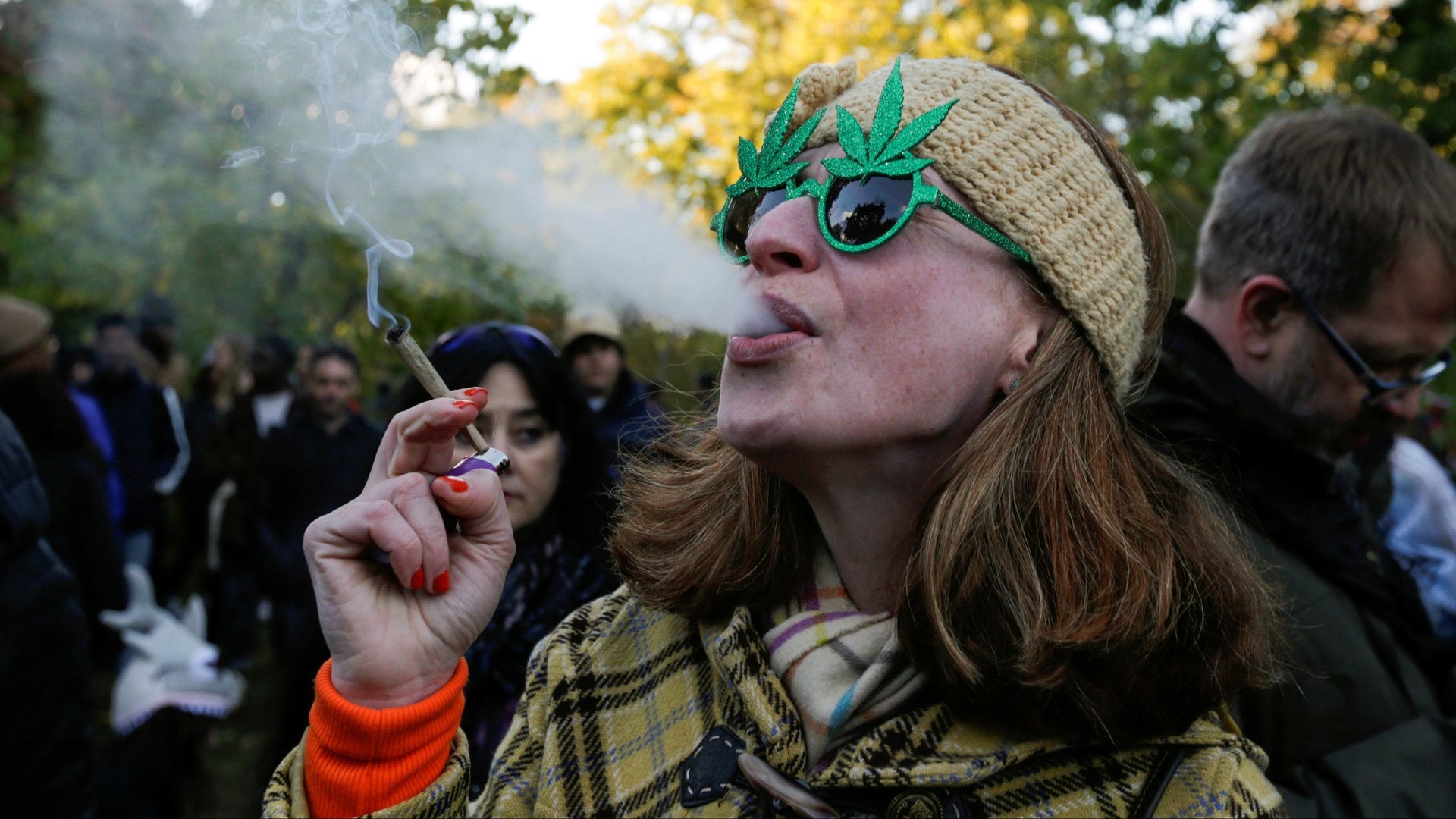Michigan just voted to legalize weed. Here’s where else in the world it’s legal
Michigan voted in the US midterm elections yesterday (Nov. 6) to become the 11th state to legalize recreational marijuana use. Voters in Utah and Missouri also passed measures to permit medical marijuana, while proposals in North Dakota to legalize recreational use, and in Ohio to decriminalize drugs, including marijuana, both failed.


Michigan voted in the US midterm elections yesterday (Nov. 6) to become the 11th state to legalize recreational marijuana use. Voters in Utah and Missouri also passed measures to permit medical marijuana, while proposals in North Dakota to legalize recreational use, and in Ohio to decriminalize drugs, including marijuana, both failed.
Still, Michigan, Utah, and Missouri’s new cannabis laws may be a sign that marijuana legalization is gaining momentum across the country. “We hope the results of this election will inspire Congress to finally start addressing the tension that exists between state and federal marijuana laws in our nation,” Steve Hawkins, executive director of the Marijuana Policy Project, an organization focused on legalizing marijuana across the US, said in a statement.
The measures in Michigan are expected to take effect by early December, when the state will join a number of places around the world where the use of marijuana is legal. Laws on the use and sale of marijuana vary widely, however.
In the US, recreational marijuana use is allowed in Alaska, California, Colorado, Maine, Massachusetts, Nevada, Oregon, Washington state, Washington DC, Vermont, and now, Michigan. Missouri and Utah join 20 other states in allowing its use for medical purposes.
As Quartz previously reported, almost double the number of Americans support marijuana legalization now compared to 2000, according to the Pew Research Center. While voters in North Dakota and Ohio’s made their misgivings about weed clear, election results in Texas are one more signal that views have significantly shifted. Republican Pete Sessions, chairman of the House Rules Committee and one of the most powerful anti-pot officials, lost to Democrat Colin Allred, who had notably criticized Sessions for refusing to acknowledge the benefits of medical marijuana for veterans.
Recreational pot use is also gaining acceptance around the globe, though there are still relatively few places where it is fully legal.
Canada became the second and largest country in the world to legalize weed nationwide in October. Uruguay was the first country to fully legalize marijuana in 2013 and last year began allowing sales in local pharmacies for citizens.
Peru allowed the production, sale, and importation of cannabis oil in October 2017 for medical use. While the sale of marijuana is technically illegal in Spain and the Netherlands, citizens are usually not penalized for growing or consuming it privately. And in September this year, South Africa’s constitutional court ruled people could grow and use marijuana for personal use, as long as it is done in private. (Kindland has a comprehensive list of all the places around the world where marijuana is legal or has been decriminalized.)
The US is a long way from fully legalizing medical and recreational marijuana use across the country, but Michigan’s new laws are a example of how radically the country’s position on cannabis has changed in just two decades.